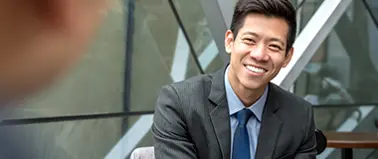How To Discover Your Hidden Skill

Have you ever been deterred from applying for a job you thought you’d be great at, just because you felt your skills and experience didn’t 100 percent match up with the job description? Were you put off embarking on the time-consuming process of drafting the perfect cover letter and CV, because you automatically assumed you didn’t have enough experience, or the right expertise to even be considered?
If so, then you’re not alone. Many job seekers are guilty of this, regardless of seniority or level of experience.I strongly believe that given the current recruitment landscape, there’s really no need for job seekers to feel this level of self-doubt during the job search process.
Why? Because, in actual fact, many employers worldwide are finding themselves facing a skills shortage epidemic, particularly in younger industries and growth markets. Employers are also realising the importance of soft skills, which are now held in the same regard as those harder, more technical skills which tend to be more specific to the role.
Looking for a new role? Search here for your ideal job
What does this mean for you?
As a result, job seekers like you are realising the value of their transferable attributes, I like to call them their ‘hidden skills’. More so, they are using these attributes to consider applying for jobs which previously seemed out of reach, or weren’t even on their radar.
Hidden transferable skills are those that you may not even consider as having any value, something that you may think of as being par-for-the-course, but are actually highly sought after in other industries. It could be anything, even your own mother tongue.
Simply put, people around the world are discovering their hidden skills which will enable them to do jobs that they would never have previously considered. More so, when applying for these roles, they emphasise these hidden talents during the application process, knowing that hiring managers are being more receptive and open-minded than ever before. Administrators are finding that their organisational skills are in demand as personal assistants; local radio DJs who spent time selling advertising space have found their way into selling real estate; and employees in IT departments – are finding lucrative positions in the automotive industry as AI grows in importance.
The question is: how you can do the same? I recommend taking the following the below steps:
Step 1: Discover your hidden skills
Look back at your previous jobs, volunteer work, educational background, extracurricular activities and hobbies, and identify the transferable skills you needed to do those tasks well.
Also, think about the attributes people have praised you for, both inside and outside of work and academia. For example, your university peers may have commended you for your organisational skills when leading on a group project, your friends may say you are very rational and great at giving practical advice, or your colleagues may see you as a strong team player who always has their back.
Make a list of these transferable skills, look at which ones you enjoyed showcasing the most, and which you think you could utilise and develop within a professional environment.
Step 2: Determine which roles require your hidden skills
Assess which industries, companies and roles require these skills. You can do this by browsing recruitment websites, making use of search filters to find roles which require the transferable skills you have identified.
I also recommend you speak with an expert recruiter, who can give you advice as to in which industries and roles you might be most in demand. You can also get their feedback as to whether you’ll need to up-skill before you embark on a job search, be it through volunteering, training courses, or even finding a mentor.
Step 3: Start your job search
Once you have identified exactly what your hidden skills are, and, importantly, know where these may be suited, it’s time to start getting job application ready. Update your CV and place a new emphasis on these a, and examples of when you have used them. When speaking with recruiters, hiring managers, and writing your covering letters, elaborate upon how these skills can transfer to the role that you are applying for.
One thing to keep in mind is that all skills can be transferable, but it depends on what position you are looking for, the talents you enjoy showcasing, and how much honing and developing these attributes need before you can become job application ready. In short, have faith that possessing the core strengths which enable you to perform within a role, are enough to start you on your journey to securing a job which you previously thought was out of reach, and begin shouting about your hidden skills.
Related Blogs:
Looking for a new role? Search here for your ideal job
Click here to create your account with Hays. Upload your resume and get career advice, interview tips and hot jobs from our consultants.
AUTHOR

MARC BURRAGE
Regional Managing Director
Marc Burrage was appointed as Regional Managing Director for Hays Asia in 2022.
Marc joined Hays at the beginning of 2012 as Regional Director for Hong Kong. In 2014 he was asked to head up the Hays Talent Solutions business in Asia, before being appointed Managing Director for Hays Japan in 2015. In this role, Marc was responsible for the day-to-day operations and growth of the Japanese business across all specialisms, supplying permanent, executive search, temporary, contract and onsite solutions. In September 2019, Marc was appointed Managing Director of Hays Poland.
Marc has broad industry and functional expertise, with a proven track record of continued success and has led and grown businesses in the UK, Australia, New Zealand and Asia. Prior to working in the recruitment industry Marc held various sales and marketing management positions in the automotive industry. He has extensive business transformation and change management experience and is adept at building, developing and leading cross functional teams. Marc was a board member for the Leadership Institute of New Zealand and studied strategy at Ashridge International Business School.

The job interview
The word you are saying too much in job interviews
Discussing your salary expectations
Answering competency-based interview questions
Answering behavioural job interview questions
How to answer, “Why should we hire you?”
Questions to ask following the pandemic outbreak”
How to deal with a counter offer



